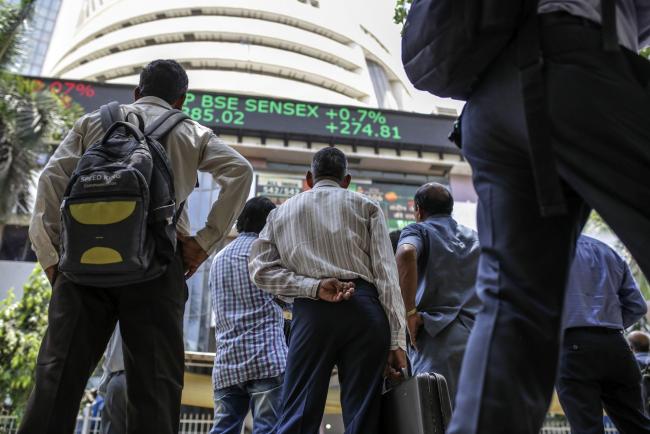(Bloomberg) -- India’s benchmark stock index was little changed as it headed toward its worst January in four years as the government grapples with measures to spur the slowing economy.
The S&P BSE Sensex added less than 0.1% to 40,937.16 as of 9:57 a.m. in Mumbai, set for a monthly loss of 0.7%, its worst such performance since July and start to the year since 2016. The NSE Nifty 50 Index was little changed today.
Local markets will open Saturday, enabling investors to trade as Finance Minister Nirmala Sitharaman outlines India’s annual budget as the government seeks to revive demand. Growth in Asia’s third largest economy is at its slowest pace in more than a decade.
As earnings season progresses, 14 out of 23 Nifty 50 companies that have reported results for the quarter through December have missed analyst estimates. State Bank of India, ITC, Hindustan Unilever (LON:ULVR), Power Grid Corp of India, Vedanta, and Tech Mahindra are due to post results today.
Strategist View
“There are a lot of expectations on the positive side for the budget,” said Sanjiv Bhasin, an analyst at IIFL Securities Ltd. in Mumbai. “The recent market correction gave investors a good buying opportunity.”
The Numbers
- Twelve of 19 sector sub-indexes compiled by BSE Ltd. declined, led by a gauge of power companies.
- Gaining and declining stocks on the Sensex were equally matched.
- Kotak Mahindra Bank Ltd. contributed most to the index advance with a 3.9% gain after ending a dispute with the banking regulator over its founder’s shareholding; Reliance Industries Ltd. was the biggest drag, dropping 0.7%

- India Braces for Deficit Blowout, Higher Borrowing: Budget Guide
- Richest Asian Banker Ends Feud With RBI, Agrees to Cut Stake